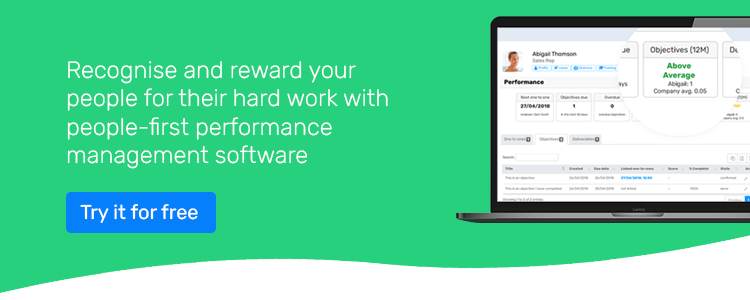Old-fashioned ways of working are now on the way out - luckily employees are now trusted and have autonomy in businesses with a good company culture.
Empowering your employees is important. Trusting them to make decisions and to take charge of their roles will benefit your business in other ways, too. Working in a culture that allows for empowerment means your team are more likely to be productive, happier and more engaged.
What does employee empowerment mean?
Employee empowerment is essentially the opposite of micromanagement. Empowering your employees means giving them autonomy to perform their roles as they think best. It involves giving them the responsibility and autonomy to manage their own jobs, set their own objectives and make decisions about tasks, priorities and deadlines.
How can SMEs empower their employees?
To bring about employee empowerment, you need to share your top-level vision – that’s the mission, objectives and strategy for the organisation. This helps employees to understand how their roles contribute to the overall success of the business.
Then you have to maintain this level of involvement, regularly engaging with employees to communicate strategy and plans, so that you are all working in the same direction.
To be successful, empowerment requires that managers trust their staff; trust that they will make the right decisions and that they will be effective in achieving their goals.
Trusting this decision-making further involves managers to provide sufficient information to employees. It’s not just the top-level strategic direction that needs to be shared, but also financial and business reports, budgets, human resources information, marketing messaging, and so on.
Managers need to provide feedback so that employees can assess their own impact and address any issues or adjust future plans. And if staff are succeeding and working effectively, then reward and recognition for their achievements should be readily forthcoming.
What are the benefits of employee empowerment?
-
When people are self-determining and self-managing at work, they have a greater sense of job satisfaction. With this comes an increased motivation and drive to do a great job - teams are more effective in their roles and more productive; not to mention happier.
-
Greater autonomy also stimulates creativity and helps generate ideas, bringing more innovation to the business. This fuels the development of new products and services, or enhances business processes, all of which helps drive business success.
-
Empowerment can bring greater customer satisfaction too, especially where customer-facing employees have the authority to make decisions. We’ve all seen those documentaries where the boss goes undercover and discovers that there’s a level of dissatisfaction that is affecting customer service. Typically, senior management is quite removed from the end customer – especially in larger businesses - and unless management can get close to customers, then employee dissatisfaction can be easily missed. But by feeling empowered, staff would be self-managing and have the authority to address customer issues directly or to manage themselves so that customer service is a priority.
-
When staff try out new ideas and perhaps test new skills, then they grow and develop. They learn, improve themselves and become more proficient. In turn, this makes them happier, more enthusiastic and better prepared to face the obstacles and challenges they face.
Empowerment for your SME
If you want to empower your staff, but aren’t sure, you could start with allowing autonomy over some lesser aspects of their roles. For example, you could give them more control over their workloads, new ideas, have them determine their own team structures or involve them in recruitment decisions.
Just giving your people a degree of choice will fire up their motivation and performance. If you get employee empowerment right, you will find that empowered staff are happier, more productive and will contribute to business success.

Author: Aimée Brougham-Chandler
An IDM-certified Digital Copywriter (2023) & English Language & Literature graduate (BA Hons), Aimée is Breathe's Content Assistant. With 3 years' content marketing experience, Aimée has a passion for writing - and providing SME HR teams with solutions to their problems. She enjoys delving into & demystifying all things HR: from employee performance to health and wellbeing, leave to company culture & much more.




